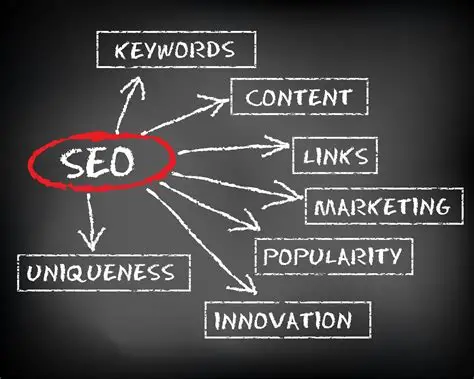The Connection Between Content and SEO
Content and SEO are deeply connected, forming the foundation of effective digital marketing. High-quality content attracts visitors, engages them, and encourages conversions, while SEO ensures that this content reaches the right audience through search engines. Understanding this connection is essential for businesses seeking to improve online visibility and performance.
Why Content Matters for SEO
Search engines prioritize websites that offer valuable, relevant, and original content. Content provides context for search engines to understand your website’s purpose and relevance to user queries.
Well-written articles, blog posts, videos, and infographics signal authority and expertise. When paired with proper SEO techniques, content can significantly improve organic traffic, rankings, and engagement.
Keyword Research and Integration
Keyword research bridges content and SEO. By identifying the terms users search for, businesses can create content that matches user intent.
Integrating keywords naturally into titles, headings, meta descriptions, and body text improves search engine visibility. Overstuffing keywords, however, can harm readability and SEO performance. The key is to balance optimization with a seamless reading experience.
High-Quality Content Drives Engagement
Content that provides value keeps users on your website longer. Informative articles, tutorials, and guides answer questions, solve problems, and build trust.
Engaged visitors are more likely to explore multiple pages, share content, and return in the future. High engagement signals to search engines that your website offers relevant and useful information, improving rankings.
Content Structure and Readability
Organized content enhances SEO and user experience. Using headings (H1, H2, H3), bullet points, short paragraphs, and visual elements improves readability and comprehension.
Search engines reward content that is easy to scan and understand. Clear structure allows crawlers to index information effectively, boosting visibility in search results.
Fresh and Updated Content
Regularly updating content signals that your website is active and relevant. Search engines favor fresh content because it reflects current trends, information, and user interests.
Updating old articles, adding new insights, and creating timely content increases traffic and keeps audiences engaged. This practice strengthens SEO performance over time.
Internal and External Linking
Content supports SEO through strategic linking. Internal links guide users to related pages, improving navigation, session duration, and crawlability.
External links to authoritative sources enhance credibility and demonstrate relevance. Both internal and external linking contribute to better search rankings and user trust.
Optimizing for Featured Snippets and Rich Results
Structured, high-quality content increases the likelihood of appearing in featured snippets or rich results. Using clear headings, concise answers, lists, and tables helps search engines identify key information.
Appearing in rich results improves visibility, click-through rates, and positions your brand as a trusted source in your industry.

Measuring Content SEO Performance
Analytics tools track how content performs in search engines. Metrics such as organic traffic, bounce rates, time on page, and conversions provide insights into what works and what needs improvement.
By analyzing data, businesses can refine content strategies, target high-performing keywords, and create content that delivers measurable SEO results.
Conclusion
Content and SEO are inseparable elements of digital marketing. High-quality content attracts and engages users, while SEO ensures that content reaches the right audience. By conducting keyword research, creating structured and readable content, updating regularly, and linking strategically, businesses can strengthen their online presence.
Investing in content that aligns with SEO strategies drives organic traffic, enhances user engagement, and supports long-term business growth. Understanding and leveraging this connection allows companies to stand out in competitive digital landscapes.



